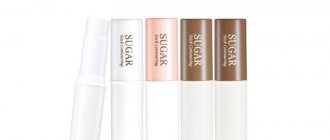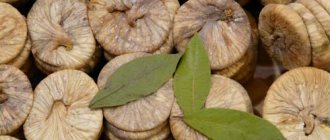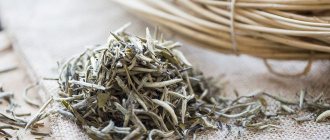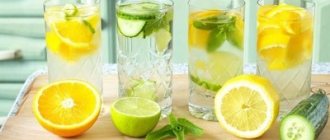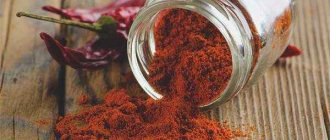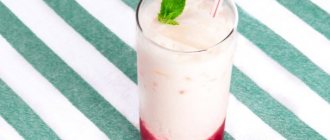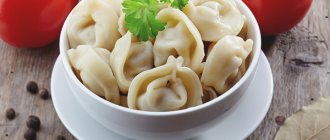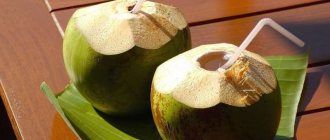Breakfast cereals are extremely popular among both adults and children. Manufacturers' advertising positions breakfast cereals as the most delicious and healthy food. What does the medical expert think about this?
There is no doubt, breakfast cereals are delicious, and you can’t argue with that, but you need to think about the benefits. There is no secret that the quality and benefits of breakfast cereals depend on the methods and technology of preparation.
You don’t have to go far into history to understand that initially this food was nothing more than pressed bran without any additives. Not very tasty, but healthy!
Gradually, in order to improve the taste, various additives began to be added to the bran. The demand for breakfast cereals has naturally increased. And how!
What are they or types of breakfast cereals
There is a wide variety of breakfast cereals and their varieties on store shelves. Choose what you like!
Regular cereal
Flakes are prepared from different types of cereals by flattening and cutting into thin slices. As a rule, flakes are made without any additives.
There are cereals that need to be boiled, and there are those that do not require cooking. Such flakes have undergone additional heat treatment: the grains are boiled, steamed or treated with infrared rays, and then flattened and dried.
Muesli is the same cereal
If you add pieces of fruit, berries, nuts, chocolate, honey or jam to regular cereal, you get muesli.
Snacks are figurines made from cereals
Balls, pillows, fish and other figures made from corn, rice, oats or other grains are snacks. To preserve maximum minerals and vitamins, they are steamed under high pressure.
Unfortunately, there are other ways to process breakfast cereals that careless manufacturers resort to.
Do you know for sure that you can eat corn flakes?
We have known about the benefits of breakfast cereals for many years: advertising is created by very talented people, and usually, when it comes to food products, they use the theme of family and small children - this works flawlessly.
Breakfasts made from grains are actively advertised: wheat, rice, oats, corn, with various additives - they do not require cooking, and in recent years they have become simply universal throughout the world - they are eaten with milk, juice, etc.
Corn flakes are more popular than others - perhaps because they are talked about in advertising more often than others.
Today we will talk about such a popular fast breakfast all over the world as corn flakes. Are they as healthy as they say on TV commercials? Let's figure it out: are corn flakes harmful or beneficial to our body? Go…
Corn flakes have their own history, dating back to the 19th century in the USA.
Brothers D.H. and V.K. The Kellogs, who owned a sanatorium in Michigan, decided to introduce cornmeal dishes to the patients' menu. One of these dishes was prepared in the kitchen on the day when they had to urgently leave for a couple of hours on business, and they did not control the cooking process.
Vegetable diet for weight loss
When they returned, they discovered that the dish was spoiled: the dough did not come out of the flour, everything curled up into lumps and flakes.
There was little corn flour, and it was a pity to throw it away, so the brothers used simple devices for rolling, and then crushed the resulting thin layers and fried them in oil.
Unexpectedly, everyone really liked the dish: the cereal was crunchy, and with milk, marshmallows and sugar, the patients found it very tasty. One of the brothers was a doctor, and patented this recipe - the original corn flakes; Then the brothers founded a new company and began mass production.
Today, Kellogg's is over 100 years old and is the world's largest manufacturer of breakfast cereals, including corn flakes.
So is it good or bad?
Of course, we want to know what is more beneficial or harmful in the corn flakes that our children love so much? The quality of most products, as is known, depends not on their usefulness or harmfulness, as such, but on the technology of their preparation. We will tell you about the right technology - this is how manufacturers talk about it.
Features of corn flakes production
First, the shells and germs are removed from the corn grains, and then the resulting raw material is ground into grits. A safe product should contain only corn itself, salt, sugar and malt syrup and water.
First, all the ingredients are mixed with a mixer, and then the mixture is loaded into the cooker, where the grains are treated with steam - all grains should turn golden brown.
After heat treatment, the mass is unloaded onto a conveyor and passed through a device that destroys lumps: it separates the adhered particles of grain so that drying is uniform. Then, in small portions, the product is sent to the dryer; it is then cooled to ambient temperature and subjected to a conditioning process to evenly distribute any remaining moisture.
As you can see, the process is not that complicated, and is quite consistent: on a special machine, the raw materials are flattened, obtaining thin flakes, and then they are fried for one and a half minutes in a special oven under the influence of steam, at a temperature of 275 to 330 ° C.
There is another way to produce corn flakes - the extrusion method, in which steps 2 to 6 are not required: the mixture is immediately pressed through the holes of a special apparatus - an extruder; at the same time it is cooled, and the resulting dough is cut into flakes, which are then dried, flattened and fried.
Previously, corn flakes were produced without additives, but now they are enriched with vitamins and minerals; cover with icing, caramel, chocolate, sugar syrup; add dried fruits, fat, milk and other ingredients to them. In this case, of course, E is also added: taste enhancers, flavors, stabilizers, etc.
Promotes weight gain and obesity
British nutrition experts, examining corn flakes from some manufacturers, found that they are not as healthy as they try to make us believe.
Of course, manufacturers love to talk about the benefits of their corn flakes - they always need large sales volumes, but you should not take their assurances literally.
A study has shown that a serving of cornflakes can contain as much sugar as a chocolate cake - that is, ¼ of all the sugar that an adult can eat in a day.
But children eat corn flakes, and parents think that they are feeding them a healthy product, not suspecting that some manufacturers even use trans fats - enough is already known about their harm.
Italian nutritionists have also paid attention to breakfast cereals, and today claim that corn flakes, especially if consumed frequently, can contribute to weight gain.
Scientists from a Florence university observed a group of children from 5 to 10 years old and found that those children who eat corn flakes almost daily suffer from obesity.
Moreover, obesity in children begins after only a year of such nutrition, although corn itself has never contributed to the accumulation of fat in the body.
Flakes provoke the deposition of fats, the accumulation of sugar, worsen the functioning of the stomach and intestines, cause nausea, abdominal pain, constipation and other problems.
Our nutritionists also studied the effect of corn flakes on health, and came to the conclusion that it is often impossible to feed them to children - it is very harmful.
Dry breakfasts are usually included in the diet of younger schoolchildren, and many women also consider them healthy and eat them almost every day, wanting to get their figure in order - after all, this is what the advertisement says.
But it is enough to carefully consider the composition to understand that corn flakes are very high in calories and harmful to health - they contain flour, refined sugar, oil and food additives.
What about vitamins?
But what about the vitamins and minerals that we are promised if we regularly eat corn flakes for breakfast? After all, the daily norm of B vitamins, vitamin D, calcium, iron and other essential substances is promised. Of course, there are vitamins there - synthetic, like in a pharmacy: they are added along with E supplements, sugar and fats.
Mustard wraps for weight loss and cellulite
Much more vitamins are contained in regular porridge, oatmeal or buckwheat, and also in milk, which is recommended for pouring into cereal. So maybe it’s better to drink a glass of milk without any additives?
Studies have also shown that even the safest and healthiest breakfast cereals - unroasted muesli with a low amount of fat and additives from dried fruits, contain less vitamins and minerals than Hercules oatmeal, which costs 5-6 times cheaper than popular products in beautiful packaging.
Nutritionists recommend that those who want to eat muesli, choose products without oil and sugar, pour regular boiling water over them and add honey - then this can be called a dietary dish that can be given to children.
By the way, in many developed countries, sweet corn flakes, rings, and pillows have been on the list of harmful products for several years now - for example, in England they are considered as “healthy” as soda, confectionery, packaged nuts, chips, etc. other snacks.
Minimum nutrients
Most nutritionists and doctors consider the benefits of corn flakes to be exaggerated, and explain this in quite understandable language.
The whole grains from which the flakes are prepared are deprived of the shell, germ, ground into flour, and subjected to repeated heat treatment at high temperatures, so there are almost no natural vitamins, minerals, fatty acids and beneficial fiber left in the finished product.
Carbohydrates from grains crushed into flour are absorbed quickly and in large quantities - hence the accumulation of fat reserves in the body.
Corn flour easily turns into fat once it enters our body, and it is hardly possible to eat enough cereal: the feeling of fullness quickly goes away due to an increase in the level of insulin in the blood - after all, there is a lot of sugar in the cereal, and we are hungry again. There are cereals that contain almost 50% sugar, and also fats, salt and all sorts of additives and dyes, which often cause allergies. The harm of corn flakes to health is obvious!
Can I eat corn flakes?
And in conclusion, I would like to ask the most common question: is it possible to eat corn flakes and give them to children? Of course, you can, very rarely, and not for breakfast, but as an addition between meals, and best with low-fat milk, yogurt, kefir and other fermented milk products.
This way you can make them “more harmless”, and even benefit from them - you can be satiated and gain at least some energy reserves. Choose unsweetened cereal, without icing or chocolate, and add to it, in addition to milk or kefir, fresh berries or pieces of fresh fruit.
Article protected by copyright and related rights. When using or reprinting material, an active link to the women's website www.inmoment.ru is required!
cornflakes
Source: https://www.inmoment.ru/beauty/health-body/cornflakes.html
The benefits of breakfast cereals
Many people are interested in: “Are there any benefits from breakfast cereals?” Let's start with the fact that children really like them, they are satisfying, and compared to ordinary sandwiches, they are healthier, and they do not require much time to prepare.
In our fast-paced age, when there is not enough time for anything, it is better to have a dry breakfast than to eat nothing.
Summarize:
- Children like it, children don’t like porridge
- Hearty and good for breakfast and snacks
- Prepare quickly
Perhaps that's all!
Corn flakes benefits
Crispy corn flakes and balls are not a healthy breakfast at all. But you can get benefits from them if you use them correctly.
depositphotos.com. sommaill.
Composition of the product
Ideally, the cereal should consist of salt, corn flour, sugar and a small amount of butter. There are unsweetened variations to which sugar and its analogues are not added.
Before talking about the harmfulness or usefulness of this product, you need to understand what is included in its composition. And a lot goes into it.
- Macro- and microelements: potassium, iron, sodium, cobalt, chromium, magnesium, zinc, copper.
- Vitamins: A, B1, E, PP, B2, H.
Corn breakfasts also contain a lot of fiber, glutamine and other amino acids, and starch.
In other words, this food contains a lot of nutrients. But it can’t be done without a “but”. The vitamins in this product appear through enrichment, that is, they are synthetic, just like pills from the pharmacy.
The benefit from them is insignificant or non-existent.
Most crispy products are generously flavored with sugar syrup and flavoring additives, and even if they make the cereal tastier, it is certainly not healthier.
For mood and brain activity
This product contains tryptophan. In the body, this substance is converted into serotonin, a neurotransmitter. Thus, a portion of crispy cereal gives a person an optimistic mood and a good mood.
Glutamic acid accelerates metabolic processes occurring in the brain.
Starch helps strengthen nerve cells. Therefore, eating “ready-made breakfasts” made from corn helps to quickly increase intelligence, and in the long term, maintain a strong nervous system and excellent memory.
Benefits for the gastrointestinal tract
This product contains a lot of fiber, which is necessary for the normal functioning of the intestines. In general, eating cereal stimulates the gastrointestinal tract and helps relieve the body. It is advisable to use them for people suffering from constipation and colitis. To improve the functioning of the gastrointestinal tract, flakes should be eaten together with live yoghurts - then the effect will be stronger.
It is also an excellent snack for people suffering from appetite disorders. Such food gives quick satiety, which in a short time is replaced by hunger. As a result, cereal helps to awaken the appetite and solve some problems that arise in people who “forget” to eat from time to time.
This type of breakfast cereal can be eaten in small quantities by people on a strict diet. A small snack will help prevent gastrointestinal upset associated with dietary restrictions and improve your mood. But do not forget that the product is not dietary.
What harm
And although corn breakfasts made by conscientious producers are not dangerous to health, some can still cause harm.
- Synthetic vitamins, which are generously flavored with flakes, are absorbed differently than natural ones. But the latter disappear from the grain during processing. According to some reports, artificial vitamins are harmful. A German cancer center stopped giving vitamins “in tablets” to children, as it was found that they cause tumor growth. Therefore, you should not get carried away with cereals enriched with vitamins, especially for people with a genetic predisposition to cancer. And it’s better for children to eat fruits rather than synthetics.
- Research has shown that different products made from cornmeal have different effects. For example, women who consumed hominy lost weight. Those who were on a “diet” of corn flakes, on the contrary, gained weight. Therefore, a passion for cereal can ruin your figure.
- The product increases blood sugar levels. This property can be beneficial when a person’s blood sugar drops sharply, but is more often harmful to health.
Good breakfast
Advertising has conditioned people to think that cereal is an ideal breakfast. The plot of the advertisement, where a stream of milk hits a plate of sun flakes, and rosy-cheeked children happily spoon up this wonderful food under the gaze of a happy mother, is not very true. In terms of breakfast, the advantages of cereal are obvious: they do not require cooking, and you can quickly snack on them when you are late.
But the benefit is only in the absence of hassle and saving time. As already mentioned, ready-made breakfasts made from corn are quickly digested, and then awaken the appetite, so they do not give a boost of energy for the whole day. Having a snack like this, you will only have enough strength to get to work without falling asleep.
Scientists insist that breakfast should not be sweet: this creates incorrect taste habits and can also trigger the development of diabetes. Finding unsweetened corn flakes on sale is not an easy task.
How to use it correctly
Cereals should be a guest in the diet, not a lodger. You can enjoy them once or twice a week. If the situation is critical and there is no time, please do so. But then you need to add a couple of sandwiches to the menu, and use yogurt or another fermented milk product as a dressing. Of course, this combination of products is not very healthy for your figure, but it will help you overcome hunger until lunch.
In other cases, “ready-made breakfasts” should be eaten in the middle of the day as a treat or snack, but not as part of main meals. In rare cases, you can snack on a handful of cereal before bed to get rid of an attack of hunger that provokes insomnia.
Choose a product whose composition does not contain suspicious letters and numbers, but only corn flour, salt, and oil. For sweetness, you can add honey to them, but not sugar.
You should not eat cereal dry - it can cause bloating, abdominal pain, and nausea. To make flakes more beneficial, combine them with “live” fermented milk products.
For whom are they contraindicated?
- those suffering from caries;
- diagnosed with diabetes mellitus;
- with cancer;
- small children;
- for allergy sufferers.
Certain components of the flakes may cause individual intolerance. Read package information carefully, including information about trace amounts of nuts, dried fruits and other potential allergens.
Corn flakes: benefits and possible harm
Breakfast is considered the most important meal of the day, kickstarting our metabolism and giving us energy. Unfortunately, modern people have less and less time for breakfast. And here various options for instant snacks and breakfast cereals come to the rescue: instant cereals, bars, snacks, cereals...
How is this product useful? Can its use cause harm? What is worth knowing about this breakfast?
Corn flakes - what are they?
Crispy slices of corn began to be consumed as a quick snack back in the century before last. This product was invented in America and soon became popular all over the world. It is corn flakes that many parents give their children for breakfast, considering this product to be completely harmless, and sometimes even beneficial for a growing body.
The composition of classic cereal includes thin plates of corn (or some other) flour, coated with sugar syrup or glaze and subsequently fried. It is because of roasting that the famous crunch appears.
Corn is a very healthy product, which is also capable of retaining beneficial elements even when exposed to high temperatures. It would seem that cereals made from this cereal should bring exceptional benefits to our body?
A crunchy breakfast has benefits, for example, it can give you energy for a long time , however, in order not to harm your health, you should not turn the consumption of cereal into a habit.
Useful qualities
When consumed in moderation and infrequently, corn slices can indeed bring certain benefits to our body.
- The product, made from high-quality raw materials, is rich in the same vitamins as raw corn on the cob, especially calcium , phosphorus and carotene . These substances are extremely beneficial for the health of bones and teeth, and are directly involved in the formation of bone tissue, growth and development of a growing organism. In addition, carotene is necessary for good vision and the prevention of eye diseases.
- The flakes also contain fiber , which has a beneficial effect on the functioning of the digestive system and gastrointestinal tract. Fiber facilitates the digestion of food, improves intestinal motility and prevents constipation or bloating.
- Crispy slices help cleanse the body of waste and toxins .
- B vitamins , which corn is rich in, are extremely beneficial for the health of the nervous and endocrine systems, they participate in important metabolic processes occurring in the body, and also regulate digestion and normalize hormonal levels. Lack of vitamin B causes mental disorders and serious neurological diseases.
- Iron , present in the product, is involved in the synthesis of red blood cells and increases hemoglobin levels in the body.
- Corn shreds are fortified with zinc , copper , cobalt , manganese and many other trace elements.
- A crispy breakfast can help prevent cancer .
- Special plates additionally enriched with vitamins and minerals are especially useful However, you shouldn’t place too much hope on such a product - there are still fewer nutrients in cereals than sugar and food additives.
Harm and contraindications
- Frequent consumption of corn flakes can lead to obesity, provoke an allergic reaction and even cause diabetes .
- People who have serious stomach problems (gastritis, ulcers) should not have crunchy corn slices for breakfast.
If you have diabetes, the use of the product is also strictly prohibited. - Corn flakes are fast carbohydrates , which the body spends very little time processing.
This means that such a breakfast, as a rule, will not be able to satisfy your hunger for a long time, and you will have to look for another option for a more satisfying snack. Thus, you will eat more calories, and this is fraught with rapid weight gain. - Frequent consumption of the product can significantly increase the risk of developing cancer, since the oil used for frying corn contains carcinogenic substances that .
- You should not overuse cereals also because they have a fairly high nutritional value - about 260 calories per 100 g of product . Do not forget that plates coated with sugar or enriched with various food additives (for example, chocolate or candied fruits) are significantly higher in calories than regular ones.
Tips for use
- Corn slices should not be consumed dry - this can be fraught with stomach problems, bloating and unpleasant sensations. If you have to eat cereal for breakfast, be sure to top it with some kind of liquid: milk, juice or yogurt.
- The most healthy cereals will be those that have a minimal amount of various additives in their composition. Try to choose just such a product, without an abundance of dyes and preservatives.
- You should not give a crunchy breakfast to small children - cereal is not very healthy for a growing body, and it can also be addictive.
Do not be fooled by tempting advertising: crispy corn slices are by no means a harmless and vitamin-rich breakfast and may well harm the body if consumed frequently. They can be used for breakfast a couple of times a month when there is no time to cook, but nothing more.
Do you know for sure that you can eat corn flakes?
We have known about the benefits of breakfast cereals for many years: advertising is created by very talented people, and usually, when it comes to food products, they use the theme of family and small children - this works flawlessly.
Breakfasts made from grains are actively advertised: wheat, rice, oats, corn, with various additives - they do not require cooking, and in recent years they have become simply universal throughout the world - they are eaten with milk, juice, etc.
Corn flakes are more popular than others - perhaps because they are talked about in advertising more often than others.
Today we will talk about such a popular fast breakfast all over the world as corn flakes. Are they as healthy as they say on TV commercials? Let's figure it out: are corn flakes harmful or beneficial to our body? Go.
What is the harm of breakfast cereals?
“Natural products, low-calorie and indispensable for weight loss,” the advertisement trumpets, but are breakfast cereals really so harmless?
An independent examination has cast doubt on the advertised benefits of breakfast cereals. In addition, manufacturers were caught concealing complete information about products.
The presence of sugar, and even worse, its substitutes in breakfast cereals makes them very high in calories.
Frying, glazing and grinding into flour affects the calorie content and health benefits for the body.
An independent examination revealed the presence of cookies, chocolate and negligible fiber in slimming products. Therefore, there can be no question of usefulness.
And yet, there are careless manufacturers who add flavor enhancers, food additives with the “E” index and other harmful components to their products that increase shelf life.

